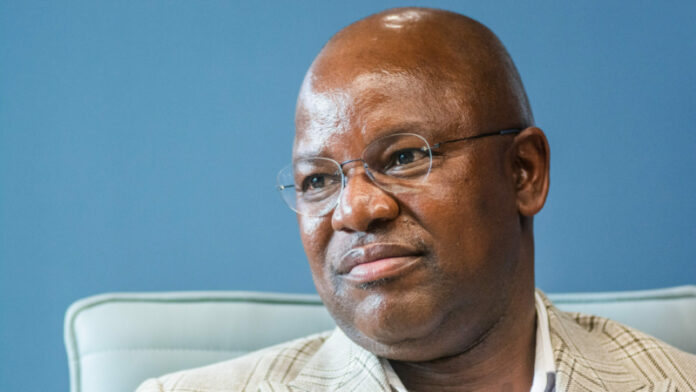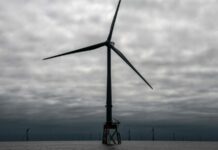
SOUTH African coal miner Thungela Resources forecast another strong export performance from the country this year amid “encouraging” signs from Transnet, the state-owned rail and ports company.
Commenting in its 2024 financial results announcement – in which net profit fell 29% to R3.54bn – the group’s CEO July Ndlovu guided to saleable production from South Africa of up to 13.6 million tons (Mt) for this year. This compares to last year’s 13.6Mt, (itself 11% higher year-on-year) amid a turnaround in the performance of Transnet Freight Rail (TFR).
TFR achieved a run-rate of 51.9Mt last year, an improvement of 8.4% with a big improvement in the second half of the year which averaged 56.2Mt (47.3Mt in 2023). Ndlovu said in a media call today that performance could even be bettered this year to as much as 60Mt. “Beyond that there would have to be an addition to equipment, but 55Mt to 60Mt is quite likely,” he said.
This is a significant development for TFR and confirms Thungela’s production guidance in December that a combination of the fitment of locomotive spares, additional locos, ongoing line maintenance and enhancements to signalling were assisting with TFR’s recovery.
As a 23.56% shareholder in Richards Bay Coal Terminal, Thungela’s export capacity is about 13.2Mt. About a million tons of coal deliveries were into the domestic market by road, but could be diverted to lower quality exports if Transnet’s performance improved further, said Deon Smith, Thungela’s CFO.
In total, Thungela’s saleable production totalled 17.7Mt for the 2024 financial year compared to 13.2Mt in 2023. In addition to higher volumes from South Africa, Thungela also benefited from a full year of production at Ensham, its Australian mine which produced 4.1Mt (2023: 1Mt).
Ensham has not been guided higher this year as it would encounter “geological features” that would inhibit production improvements. Asked if Thungela had plans to roll out an expansion of the mine, Ndlovu said the firm had limited sight of capital expenditure owing to uncertain permitting processes in Queensland. “The lemon could be squeezed a bit more but that would require a lot of work,” said Ndlovu of growing Ensham output from its current mining plan.
Despite the production improvements, Thungela was hit by a reduction in average thermal coal prices. The northern hemisphere winter was warmer than expected which resulted in subdued demand from Europe. High stocks in Australian and sluggish demand from Asia, including China, also weighed heavily on sales prices.
Thungela reported adjusted operating free cash flow of R3.6bn for the year and net cash of R8.7bn at 31 December 2024. This is after capital expenditure of R3.4bn, partly driven by the expansion of its Elders project in South Africa, due to hit the straps in early 2026 with production of 4Mt/year.
The outcome for shareholders was a 27% year-on-year decline in headline shares earnings to R25.59/share. Thungela declared a R11/share final dividend taking the total payout declaration for the year to R13/share. This in terms of its dividend policy of returning 30% of adjusted operating free cash flow to shareholders.
Thungela said it would press on with its share buy-back programme. Up to R300m would be bought this year following repurchases of R601m in 2024, equal to about 3.2% of issued share capital.
In terms of its capital plans, group would also allocate R400m to the Lephalale Coal Bed Methane (LCBM) project, situated in the Waterberg coal field in Limpopo. Ndlovu said a demonstration plant would be built supplying one of its mines to prove the business and technology.











